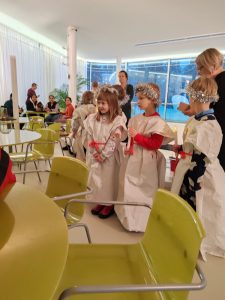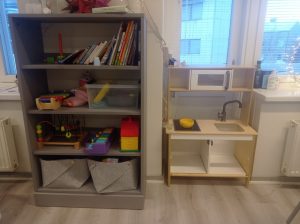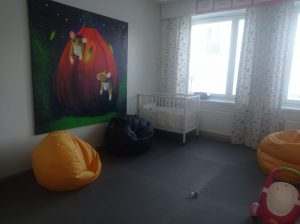
The Importance of Early Childhood Education
Vol 26, Issue 14
A child is a god-sent gift to a family whose upbringing should be molded from birth. Early Childhood Education lays the foundation for the learning and development of a child’s physical and mental well-being while acquiring knowledge and skills till the years from birth until the age of eight. Medical scholars have portrayed that the level of learning and development through this period forms a child’s cognitive skills for personal growth and socialization.

Early childhood educators identify the formative period of a child’s life to emphasize the importance of early childhood education as it is important for the holistic growth of the child. The behavioral patterns of a child under eight years are recognized to be the dynamic phase of childhood with brain development. Therefore, identifying the correct approach to educate the children during the said period is critical since it forms the layout for future growth and development. The overall well-being of a child should be wisely built through physical, social, and emotional skills through carefully handled experiences. A child’s first relationship is with parents. Therefore, the relationship between the parents with the child is the utmost crucial bond that connects every other relationship. The involvement of parents in a child’s early education stage with open communication and supportive behavior brings the confidence of the child to build the personality.
Children love experimenting through discoveries. During early childhood education, these experiments should be identified as learning while creating a valuable experience for a child. Such opportunities will pave the child to understand the skill along with the required level of education. Unlike in Asian countries, European and North American countries follow the play-based approach in early childhood education since it creates an enjoyable experience for the child. It also brings the creativity of the child through curiosity with active engagement. Play-based learning technique is identified to be one of the most successful tools in early childhood education as it leads to creativity and innovation skills of a child.


Another important aspect of early childhood education is socialization. This talks about the interaction of a child with the parents, relations, friends, siblings, and anyone outside the comfort zone. The child will learn to share and care for everyone around them with socialization skills. Building comfortable relationships, positive behaviors towards the external environment, team building, and collaboration are some of the important elements in building socialization skills during education. Parents are the equal partners in the child’s journey of life through every phase. During early childhood education, parents must help the child to develop through play-based education to acquire the skills and learning for future growth and development. It is said that a child is a mirror of the parents. Thus, a child with a good heart and soul reflects a healthy upbringing through early childhood education.

- Finnish Cuisine - 19th April 2024
- “Kokis” – A Snack of Sri Lankan New-year Table - 12th April 2024
- Celebrating Cultural Diversity – The Sinhala and Tamil New Year Celebration in Sri -Lanka - 5th April 2024
